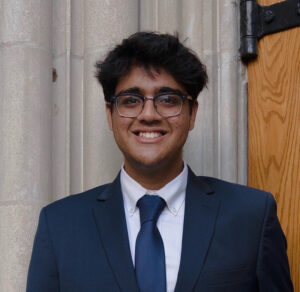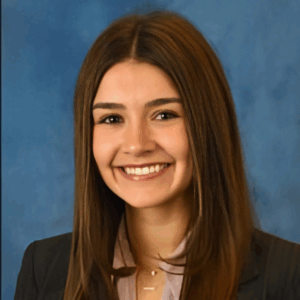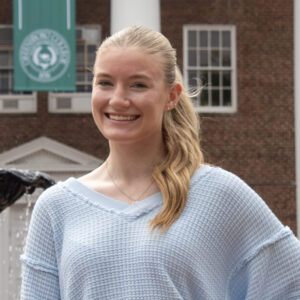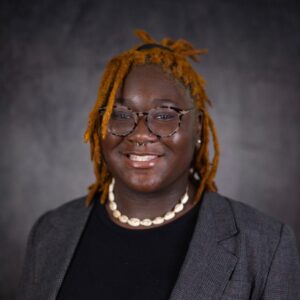NC Civic Impact Fellowship
Since 2024, the NC Civic Impact Fellowship (NC-CIF) has empowered outstanding civic-minded student leaders from campuses across North Carolina to develop an “Impact Project” that strengthens an aspect of campus civic life or civic culture. Fellows are nominated by their college/university President or Chancellor and campus mentors, based on their potential to excel in civic and community service leadership.
Each phase of the 18-month fellowship is designed to support the Fellow’s professional and personal skill development to enhance the outcomes of their Impact Project while building their capacity as civic leaders.
Fellowship Components
- Regular virtual meetings focused on professional and personal skill development
- Design and leadership of a campus-based Impact Project to improve an aspect of civic life or civic culture.
- Participation in week-long civic leadership camp (Citizen Redefined Camp)
- One-on-one leadership development with a campus mentor and NCCE staff
- Connection to a statewide network of Civic Impact Fellows
- Multiple opportunities to present at NCCE conferences and events
- Public recognition
For questions about the NC Civic Impact Fellowship, contact Sam Delap (sdelap@ncengage.org).
2025-26 NC Civic Impact Fellows
Duke University
Aarav Dagar

Elizabeth City State University
Donovan Hankins

Elon University
Anya Bratić

Greensboro College
Payton Bell

NC Central University
Madison Lee

Queens University of Charlotte
Jazzie Lee

UNC-Chapel Hill
Charvi Kavadekar

UNC Pembroke
Laila Watson

NC Civic Impact Fellowship Alumni
Elizabeth City State University – Trinitee Smith, “Politics Unplugged: Bridging Education with Civic Power”
Greensboro College – Xypher Pino, “Improving Civic Life by Empowering Students”
High Point University – Osliany Mora-Morejon, “Operation Bridging Impact”
UNC Pembroke – Magally Ortiz-Rojas, “La Communidad”
William Peace University – Christopher Simmering, “Operation Agora”
Nomination Process
- Nominations open the second week in August.
- Faculty or Staff member identifies a Civic Impact Fellow and a mentor, and completes an online nomination form. The nomination form requires a Letter of Support that is signed by the college/university President or Chancellor, as well as the student’s resume and headshot.
- Nominees formally accept nomination to the fellowship. Campuses formally agree to host the fellow.
- Cohort of fellows is publicly announced
Please note that the Community Impact Student Award now uses a separate nomination form. A student who is selected for the Community Impact Student Award receives preference for the fellowship. Receiving the Community Impact Student Award is not a requirement for a student to be nominated to the fellowship.
Eligibility
All Fellows should meet the eligibility criteria below:
- Sophomore or Junior (4-year institutions) or first year student (2-year institutions)
- Demonstrated leadership with civic, community and/or service engagement on campus.
- Capacity and commitment to developing, implementing, and leading an impactful civically-focused project that will produce tangible results on campus.
- Outstanding ability to lead and inspire fellow students to engage
Which students are a good fit for this fellowship?
This fellowship is designed for undergraduate students who have previous leadership experience and are interested in the process of designing and leading a project of their own. Many types of students can be successful in this fellowship. Here are some common traits:
- Students who either have a passion for a topic or idea affecting campus civic life that they are ready to take action on or students who are currently working on a project to improve campus civic life who are looking for extra support, funding, structure, or legitimacy for their project.
- Students who have the capacity and commitment to conduct research, attend regular virtual fellowship meetings, and carry out an independent project. Depending on the project, time commitment ranges from 1-5 hours per week.
- Students who are communicative, proactive, and comfortable working both independently and within a supportive cohort
